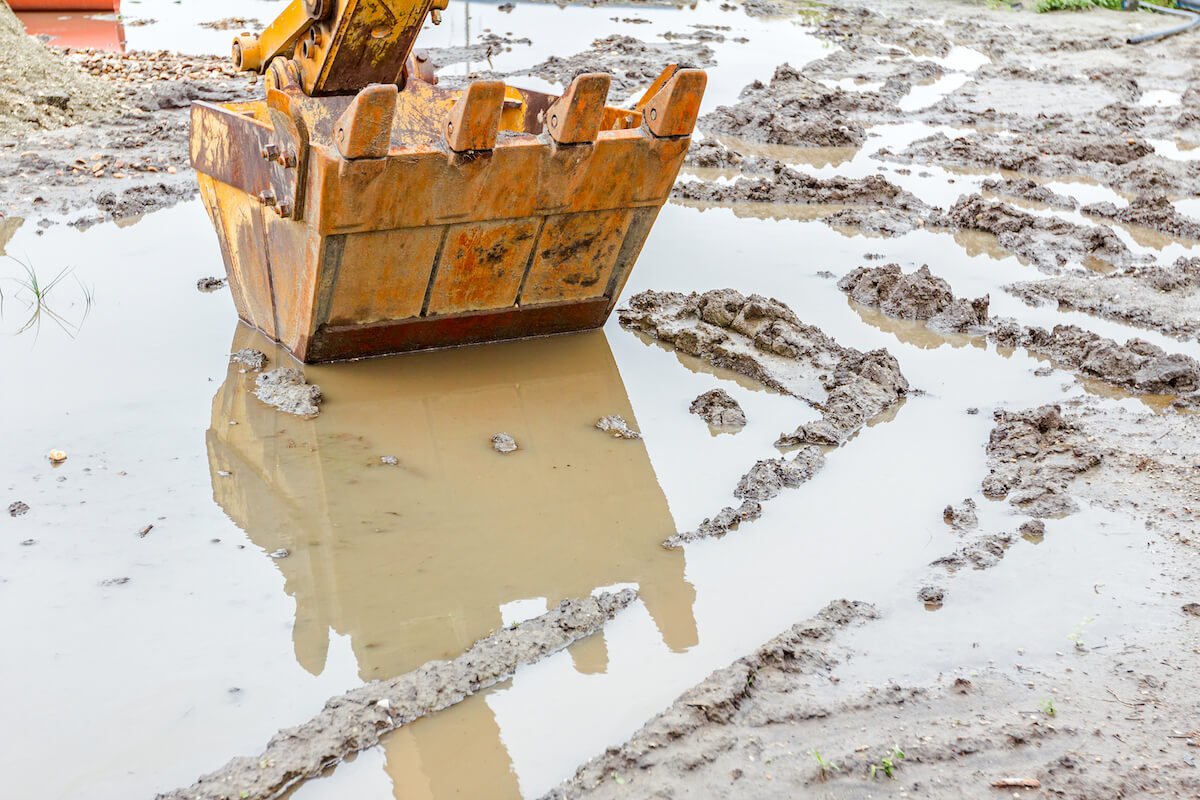
Construction Challenges
An exceptionally long winter with heavy snowfall and subzero temperatures made the early stages for constructing a new office building slow going. Finally, the snow has let up, but heavy rain keeps cycling into the weekly forecast. The weather delays on this project are cutting deeply into profits. With some luck, this may be a break-even venture but not much else..
Construction is a challenging field. Prioritizing your client’s vision within the parameters of engineering and cost can be demanding. Events consistently arise from the initial planning of the project to finalization that tests those limits. Most threatening, the inevitable delays that occur during construction. Ideally, delays are best addressed in the early stages when strategic planning can reduce this type of setback. Completely halting work to deal with a delay can affect sub-contractors, schedules, permits, and most importantly it can escalate overall costs and push the completion date out. Moreover, if Old Man Winter comes for an extended stay (as he did this year) or spring rains bring torrential downpours, those delays can become a pricey and sometimes insurmountable obstacle.
Beyond Calculating Lost Weather Days
Precipitation, extreme heat, temperatures in the negatives, wind gusts…weather is a commonly cited cause of construction delay. In the past, to assess reasonable costs and delays associated with adverse weather, a contractor used weather data to determine the likely number of non-optimal days (those days affected by adverse weather conditions such as heavy precipitation, extreme hot or cold, etc.) to complete a bid. While this may have been standard protocol in the past, climate change has made using data to predict seasonal or annual weather extremely difficult. A simple calculation using historical weather data can no longer be used effectively to gauge the possible days lost due to adverse weather. Weather patterns have changed, and there is greater uncertainty of what the weather will bring..
Force Majeure
Weather delays are often determined to be no fault, and weather loss tends to be non-compensable, so as a crew watches the heavy rains come in from the security of their cars they still need to be paid. The job is not moving forward but the financial obligations are still there, and your overhead is going up and up. In some cases, delays can be so sizeable and excessive due to adverse weather force majeure may be indicated as the cause of the delay. Force majeure, sometimes referred to as the Act of God clause, is a failure to uphold a contract due to unavoidable or uncontrollable events like extreme weather events. A party must demonstrate that a weather event occurred; it was out of their control; the event prevented or delayed performance and plans to lessen or hinder impacts were attempted to prove force majeure[1]. Adverse weather can tiptoe or plunge headfirst into this category and can be a legal pretext in breach of contract suits, which can sometimes be favorable to a contractor. However, a breached contract requires litigation, lost time, mounting expenses, and potentially a tarnished reputation within a community. Force majeure is sometimes seen as a cost of doing business, but does it have to be? There are solutions to help mitigate your risk from adverse weather and its impact..
Mitigating Weather Risk
First, you can write a contract that has you and your client’s best interest in mind distributing weather risk evenly between parties. Weather delays are often non-compensable, which can cause substantial financial losses to a construction company. Today, a contractor may extend their ability to utilize weather claims with a contractual clause. This clause delineates that compensation will be paid to a contracting firm for extensive or excusable weather-related delays citing the necessity to cover costs in keeping crews and attention devoted to this project. In this scenario, a client becomes responsible for some of the more extensive costs related to adverse weather claims.
Secondly, utilizing a weather risk management product such as weather insurance or derivatives can help to substantially reduce risk in cases of adverse weather conditions or a series of non-optimal days. These are highly specific and tailor-made products to suit a business’ or institutions’ needs to mitigate against adverse weather impacts. Weather perils such as excessive rainfall, days that are too hot, days that are too cold, wind, or a combination of elements can be insured against to lessen potential risk.
For example, a job often begins with foundational work. Concrete pours have several limitations with optimal temperatures and conditions. If adverse weather delays this portion of the construction process, there will be a stall and cause delays on other segments of the job. Sub-contractors may be unavailable with this new timetable, and the building schedule will never hit its anticipated deadline. Losses are now imminent.
Weather insurance can lessen financial loss for projects that are most impacted by weather, e.g., excavating, framing, concrete, landscaping or for an entire job from foundation to finish. Any business can buy weather insurance. If a payout is triggered, compensation goes directly to the purchaser—your company. Typically, National Weather Service data determines disbursements. Dealing with insurance adjusters and filling out long documents to “prove” your claim is not a part of this process.
Weather Delays Happen
Weather delays happen–NOAA data can help anticipate the likelihood of adverse weather delays. However, climate change and weather’s increasing unpredictably makes calculating non-optimal days extremely difficult to determine. The risk of having a non-optimal scenario during a long-term project or even in the short-term is increasingly probable. To lessen financial risk, it makes sense to have a well-written contract and to consider weather risk management tools like insurance to help eliminate the costs associated with adverse weather. These losses are inescapable. Protecting yourself and your business makes solid fiscal sense.
